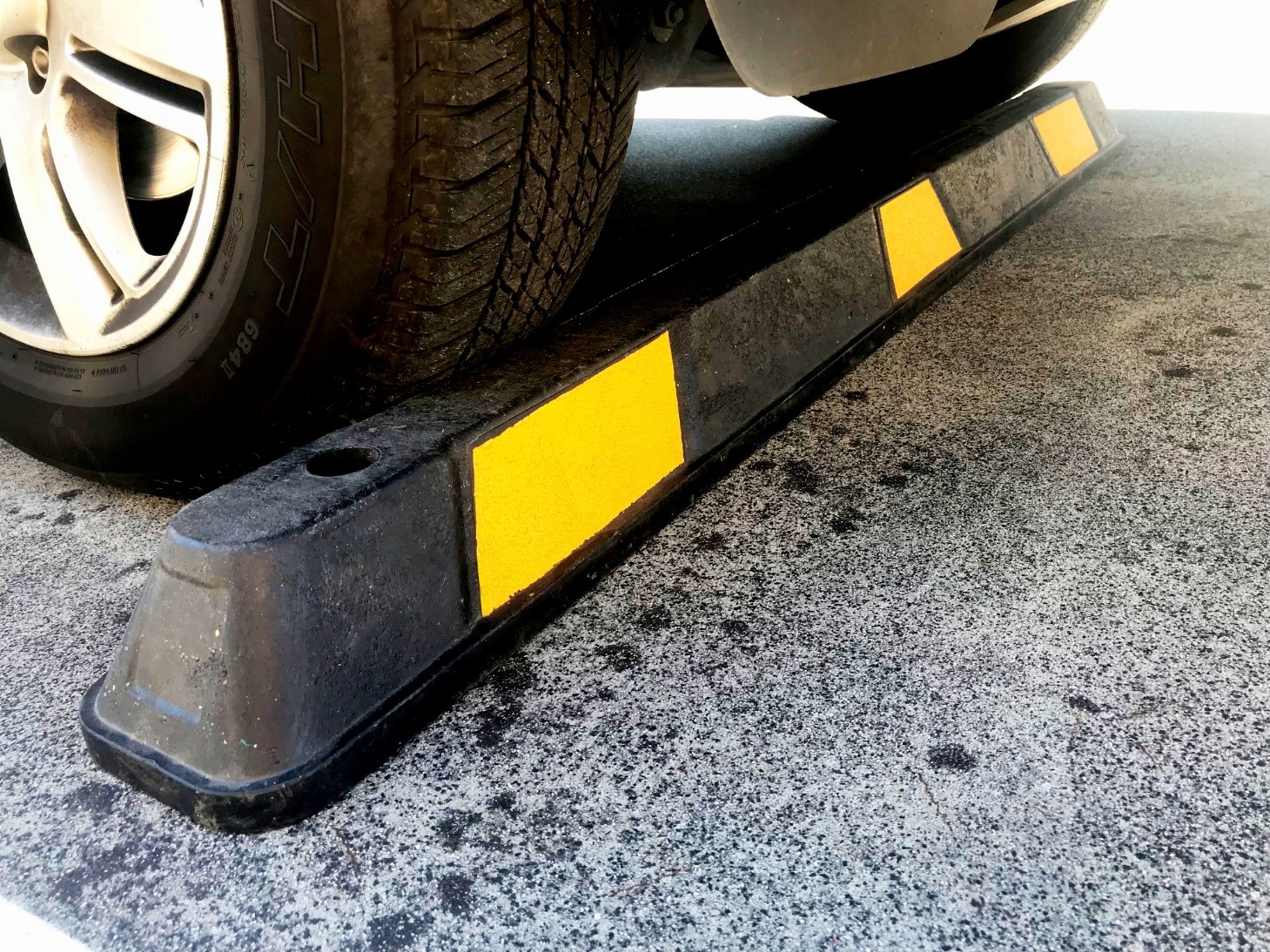3 Reasons Why You Shouldn't Back Up Until You Hit the Wheel Stopper

(Photo Credit: Safetyxpress)
When parking, many people have the habit of driving until their wheels hit the wheel stopper because they think it's an easy way to park perfectly
Did you know that doing this can cause problems for your car that we don't even notice? Today, Motorist will take everyone to see why we shouldn't reverse or drive until our wheels hit the barrier.
1. Bumpers may break without you knowing
Wheel chocks are not all the same size or height. If you back up or drive until the wheels hit the chocks hard, the bumper under the car may easily rub against the chocks, causing deep scratches. Especially if the car is quite low, there is a high chance that the bumper will bend or deform, which will cost you a lot to repair.
2. The rear of the car may hit the wall
For large or long cars, backing up until the wheels hit the wheel stopper may cause the rear of the car to hit the wall or obstacle behind you without you knowing because the car is longer than the parking space.
3. The suspension wears out quickly
The impact from the wheels hitting the wheel stopper frequently has a direct effect on the car's suspension system, such as the wishbone bushings or parts may wear out faster than they should. Therefore, after driving for a short while, you may start to feel that the car's suspension is not as soft as before. There may also be a rattling noise every time you drive.
Therefore, we should park close to the wheel stopper without hitting it. But if you are afraid of not being accurate, try using a rear camera or sensors to help preserve your car and increase safety for things around you. And you will not have to waste money and time on repairs.
Claim your free car valuation today!
Read More: How Long Do Shock Absorbers Last?
Looking for a car appraisal? You can contact us for a free car valuation within 24 hours…
